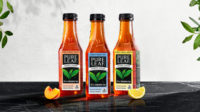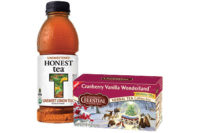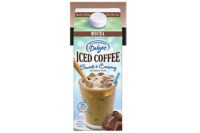2013 State of the Industry: Tea & RTD tea
Tea poised to be next ‘hot’ beverage






Following Seattle-based Starbucks Coffee Co.’s acquisition of Atlanta-based Teavana Holdings Inc. at the end of 2012, the tea industry is waiting for the hot tea segment to boom, according to experts. “If [Starbucks puts] a big push behind it because of the Teavana purchase, we could see [tea] really take off in mainstream,” said Jonas Feliciano, beverage industry analyst for Euromonitor International, Chicago, in Beverage Industry’s June issue.
From 2011 to 2012, hot tea experienced a 4 percent decline in volume but a 4 percent increase in value, which represents a premiumization trend in the category, noted Feliciano in Beverage Industry’s June issue. Consumers are willing to pay more for high-quality teas and even pay a premium to purchase these products on-premise, he says.
For more economical tea options, consumers continue to turn to tea bags, experts say. In fact, tea bags account for approximately 47 percent of the tea market, according to IBISWorld, Santa Monica, Calif.
In the ready-to-drink (RTD) tea segment, consumers are trending toward lightly sweetened beverages, according to Euromonitor’s Feliciano. For example, Plano, Texas-based Dr Pepper Snapple Group launched Snapple Peach Passionfruit and Cherry Pomegranate Lightly Sweetened teas last summer. These all-natural white teas are sweetened with sugar and contain 80 calories in each 16-ounce bottle, the company says.
Unsweetened teas also are attractive to consumers because they often do not contain any calories, according to Euromonitor’s report, “RTD Tea in the US.” In line with this, Brooklyn, N.Y.-based Runa Tea recently added two unsweetened flavors to its zero-calorie line of guayusa teas: Lime and Guava.
Consumers also are drawn to RTD teas that offer all-natural attributes because of the perceived health benefits associated with natural ingredients, IBISWorld’s Agata Kaczanowska told Beverage Industry in its June issue. According to data from Chicago-based Mintel, 59 percent of consumers say the “all-natural” label is a factor in selecting an RTD tea, and 58 percent say the use of sugar in the beverages’ formulations influences their choices.
Overall, RTD teas make up nearly 75 percent of the entire U.S. tea market, IBISWorld’s Kaczanowska said in Beverage Industry’s June issue. Even though tea drinkers are almost twice as likely to buy tea bags or loose-leaf tea compared with RTD tea, RTD tea is a higher-margin product and, therefore, commands greater share of the market value, according to Mintel. In addition, RTD tea sales increased approximately 7 percent to $4.8 billion in value in off-premise retail channels since 2012, Euromonitor’s Feliciano added.
The tea category also is seeing an emergence within the single-cup segment. Waterbury, Vt.-based Green Mountain Coffee Roasters announced new and expanded partnerships that will bring in more tea brands for use in its Keurig single-cup brewer. Englewood Cliffs, N.J.-based Unilever North America’s Lipton brand will be available this summer in hot and iced tea K-Cup and Vue packs for the Keurig as well as Starbucks’ Teavana teas.
Looking for a reprint of this article?
From high-res PDFs to custom plaques, order your copy today!








